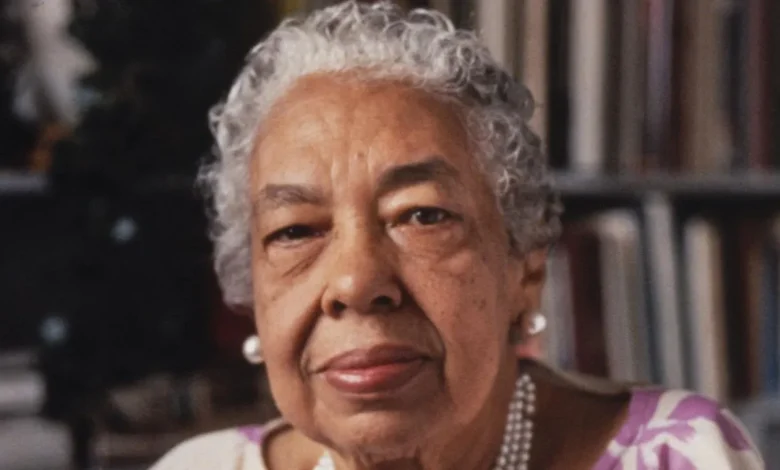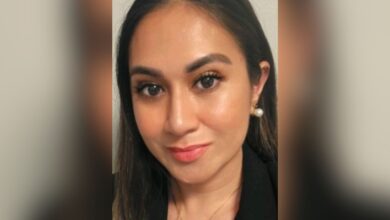All About Alice Dunnigan: The Brave Journalist Who Made History

Have you ever wondered what it’s like to be the first person to do something important? Alice Dunnigan did something amazing that many people didn’t think was possible. At a time when newsrooms were full of white men, she stepped in as a Black woman and made history. She didn’t wait for chances—she made them happen by working hard and never giving up.
If you like learning about brave people, civil rights, or the history of news reporting, Alice’s story will inspire you. She asked the tough questions, even when others stayed quiet. She stood up for herself and others, helping open the door for many reporters who came after her.
In this article, we’ll learn how Alice started her life in Kentucky and ended up at the White House asking questions to U.S. Presidents. Get ready to learn about a woman who changed the way people share the news.
Who was Alice Dunnigan, and why is she important?
Alice Dunnigan was a bright, determined woman who loved writing and sharing the truth. She was born in 1906 in Kentucky, during a time when Black women had very few rights. Many jobs were closed to people like her. But she didn’t give up. She studied, worked hard, and found her way into journalism, the news writing world.
Alice became the first Black woman ever allowed to report from the White House. That means she could go where the President worked and ask questions. She worked for the Associated Negro Press, a group that shared news with Black communities. At a time when many ignored Black voices, Alice made sure people listened to them.
She wasn’t just writing stories but changing how people saw the world. By speaking up, she helped others see that everyone deserves respect and a chance to be heard.
What barriers did Alice Dunnigan break as a Black female journalist?
Alice didn’t just face one problem—she had to deal with many. People didn’t want her in press meetings because she was Black, and some didn’t listen to her because she was a woman. She was left out of events and told she couldn’t come, even when she had the right pass. Finding a place to sleep while traveling was hard because of unfair rules.
When Alice joined the group of reporters at the White House in 1948, people didn’t treat her nicely. She had to ask others questions beforehand, while others just spoke up. But she didn’t stop. She kept asking essential questions, especially those about Black communities and fairness.
Because she didn’t give up, she helped change how people thought about who could be a reporter. Alice showed that telling the truth doesn’t need permission, and that every person deserves to be in the room.
What was Alice Dunnigan’s role in the civil rights movement?
Alice didn’t carry signs or march in every protest, but she helped in her strong way. She used her typewriter and her words to fight for fairness. She told the world about unfair school rules, how some people couldn’t vote, and times when police hurt innocent people. Her stories were honest and powerful.
She asked tough questions in places like the White House, making it harder for leaders to ignore the truth. Alice wrote about important events like the Montgomery Bus Boycott and court cases that helped make schools fairer. She gave people real facts when others wouldn’t.
Even though she didn’t shout in the streets, her quiet voice made big waves. She helped change people’s thoughts and made others want to speak up. Her reporting made a real difference in the civil rights fight.
How did Alice Dunnigan challenge unfair treatment in journalism?
Alice didn’t just face unfair rules in the world—she also faced them at work. People treated her differently when she went to report from the White House or Congress because she was Black and a woman. Some people didn’t want her there, and others tried to keep her out of essential places.
But Alice didn’t let that stop her. She wrote letters, spoke up, and reminded people she had the same rights as other reporters. When President Truman went on a train tour, they told Alice she couldn’t come. She didn’t accept that. She kept asking and was finally allowed to go.
By refusing unfair rules, she helped make things better for reporters who came after her. She showed that no one should be treated differently because of who they are. More people got a fair chance to tell the news thanks to her.
What did Alice Dunnigan leave behind for journalism and Black history?
Alice left behind more than just stories—she left a powerful example. Alice showed that reporters can be brave, fair, and honest, even when it’s hard. She didn’t report news to get fame. The journalist did it to tell the truth and help others speak up, especially those people society often ignores.
She inspired many young Black reporters, especially women, to chase their dreams. Even after she stopped working full-time, she kept writing and helping others learn. She believed that changing the world doesn’t stop when you reach your goal—it keeps going when you help others do the same.
In the story of Black history, Alice shines as a quiet hero. She stood up for what was right, used her brain and voice to make change, and reminded everyone that telling the truth matters. Her work helped America become fairer and more honest.
Final Thoughts
So, after hearing about Alice Dunnigan’s fantastic life, what sticks with you the most? It could be how she stayed calm and firm in tough places. Perhaps it’s how she kept asking questions no one else would. Either way, it’s clear that Alice’s story isn’t just about the past but also the future.
Today, the press has a big job: telling the truth, asking questions, and ensuring all voices are heard. People like Alice helped build that job. She made it possible for Black writers, women, and other underrepresented people to have a seat at the table.
If you care about fairness, truth, or using your voice, then Alice Dunnigan’s story is one you’ll never forget. She proved that no matter who you are, your words can change the world—and no one can stop you if you believe in what’s right.
RELATED: Destinee Hooker: Volleyball Star, Olympian, and Inspirational Role Model



